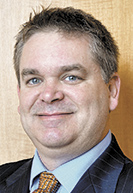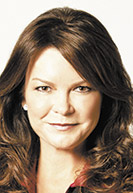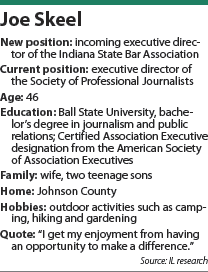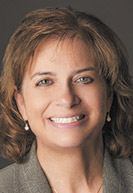Subscriber Benefit
As a subscriber you can listen to articles at work, in the car, or while you work out. Subscribe NowAlthough the Indiana State Bar Association has not had to find a new executive director for nearly 25 years, members say through their search to replace the retiring Tom Pyrz, they have found someone they believe can help the organization meet the challenges facing the legal profession.
 Skeel
SkeelTheir choice, Joe Skeel, brings experience leading a national member-based nonprofit in a field that has been disrupted by technology and consolidation. Skeel is the current executive director of the Society of Professional Journalists, which offers training and resources for reporters and editors around the country.
He is not an attorney and he has no formal legal training, but ISBA members maintain his background in running an organization and being responsive to the needs of the membership make him well-suited for leading the state bar. Skeel will officially become the ISBA executive director when Pyrz steps down Jan. 5, 2018.
“He seemed to have a genuine appreciation for the challenges and was creative in ways to address them and be responsive to our members,” ISBA President-elect Andi Metzel said, adding he was “extremely thoughtful” during the interviews and “enthusiastic about the work to be done.”
 Metzel
MetzelThe search for a new executive director brought national interest and Skeel was one of 15 candidates the succession and search committee interviewed. Metzel, partner at Benesch Friedlander Coplan & Aronoff LLP, noted the lawyers and judges doing the questioning did not shy away from pressing Skeel on his intentions and why he wanted the ISBA job.
“He earned the offer,” Metzel said.
Skeel told Indiana Lawyer he had been looking for another position, realizing he did not want to spend the rest of his career at SPJ, but was unsure where he wanted to land. When he read through the ISBA job description and mission statement, he liked what the organization was about and thought his skills aligned with the association’s needs.
“The legal profession is very much like journalism,” Skeel said. “A majority of people who get into the profession want to make a difference in their community. At their core, I think journalists and attorneys are similar in that regard. That’s a group of people I work well with.”
 Keeping ISBA viable
Keeping ISBA viable
A native Hoosier, Skeel graduated from Ball State University then worked in newspapers around Indiana before joining the SPJ in 2004. He was named interim executive director in 2008 and a year later was appointed to the position full time.
Skeel said his role at the ISBA will be to guide the institution to where it wants to go rather than take over and set the agenda. He described the executive director position as a team member who will take direction from the board of directors and volunteers and will oversee the internal operations of the association’s staff.
He will be coming into the ISBA at a time when the legal profession is being buffeted by changes ranging from e-discovery and internet-based legal service providers to more cost-conscious clients and fewer jobs. ISBA President Mitchell Heppenheimer and Deborah Caruso, who is a board member and served on the search committee, believe Skeel can help the association shore up its membership rolls.
Fraternal clubs, educational organizations, professional societies and even churches are all watching their member lists shrink. The ISBA is no different in seeing fewer people join, just as the SPJ noted a similar drop.
Skeel worked to reverse the trend at the SPJ by calling together members and drilling down to the factors that got journalists to register. Once the main motivators were identified — career advancement and advocacy for journalism — the society focused on those items and built programs around them.
“People are not joining just to join anymore,” Skeel said. “We need to make sure we’re providing programming and services people in the legal community need and expect and can’t live without.”
SPJ President Lynn Walsh said Skeel was successful in growing the organization’s membership. Also, she credited him with getting the board of directors to think more strategically and with improving the financial health of the organization.
The ISBA has developed a bit of a financial headache. According to the 2014 Form 990 report submitted to the Internal Revenue Service, the most recent available, the bar association reported revenue of $3.3 million and expenses totaling $3.46 million. However, Skeel is not worried. He said SPJ was in much the same situation when he took the top job, and he noted the ISBA has reserves.
As he transitions to his new position, Skeel plans to take a tour of Indiana and introduce himself to the ISBA members. He plans to spend a lot of time listening to gain an understanding of their work and finding opportunities where the association can fill a need.
As Metzel noted, the transition from Pyrz to Skeel will not happen overnight. But she believes Skeel will help develop innovative ways to do things better. He has the vision, she said, to enable the ISBA to remain relevant and provide members the best possible services.
‘Tremendous faith’
The 11-person succession and search committee enlisted the help of consultants Waverly Partners LLC to take the applications and do the initial screenings of candidates. After vetting all the applicants, Waverly presented the 15 candidates who best matched what the association was looking for to the committee. Skeel was the only non-lawyer in the group.
 Adinamis
AdinamisCommittee chairwoman Carol Adinamis acknowledged the concerns raised about the committee relying on the consultants, but she maintained the help was needed. The committee did not have the resources to review all the candidates, and even with Waverly, she said, committee members did extensive independent work. In addition, having the consultants do the screening reduced the conflict of interest that could have developed because some committee members had friends apply.
“Without Waverly,” Adinamis said, “I honestly don’t know if the committee could have done as good a job.”
And, she believes the ISBA got the best person for the executive director job.
Adinamis, of Adinamis & Saunders P.C., remembered that when Skeel came for his second interview with the ISBA, he had done his homework. He came with a notebook filled with his research on the association and often pulled stats and other information from it as he answered questions and talked about the organization’s future.
His level of preparedness showed Adinamis that he was a very dedicated person and very interested in the job. She does not believe his non-lawyer status will hinder him, but rather she sees his background as complementing the profession. In particular, he might bring a different perspective on the issues that arise.
“I just have tremendous faith this is going to work very well,” Adinamis said.•
Please enable JavaScript to view this content.
